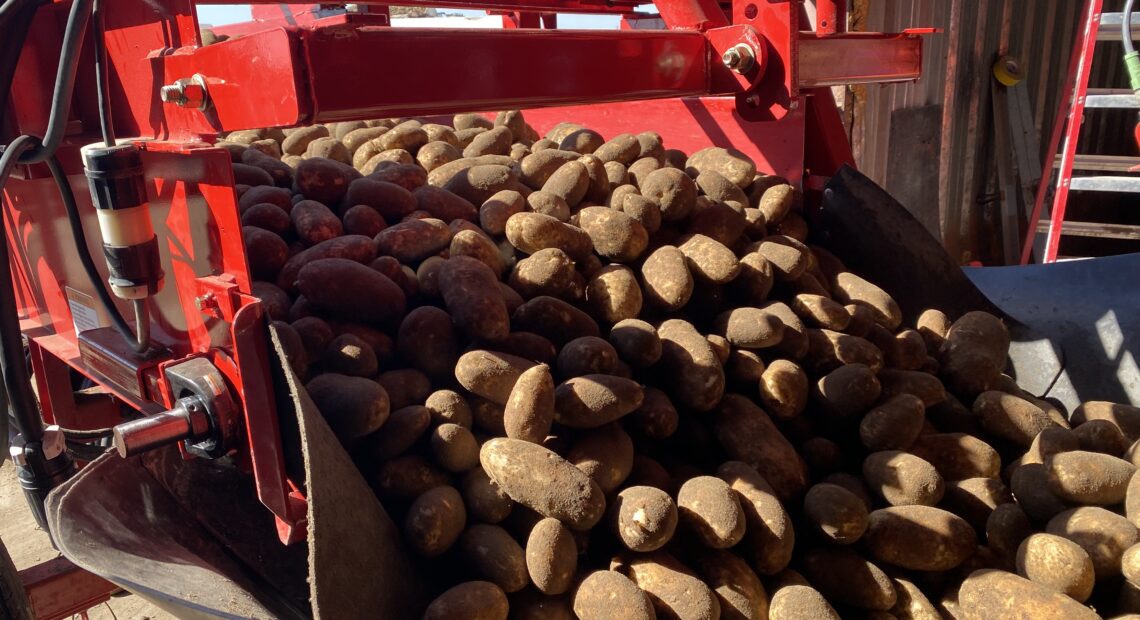
A glut of potatoes means big spud dump across the Northwest
Listen
(Runtime 1:10)
Read
About 5,000 semi-truck-loads of really nice, Northwest, french-fry-making potatoes are set to be plopped into cattle troughs or destroyed.
Dale Lathim is the President of the Potato Marketing Association of North America.
“It is disheartening. Obviously, when you produce a crop, you want to take advantage of all you can produce,” Lathim said. “It’s an economic hit, it’s a psychological slap in the face.”
It’s been a better year for Northwest’s french-fry-making potatoes than the last couple of years – too good in fact. Lathim said farmers eagerly planted more spuds this year than last. Now, massive amounts of spuds must be destroyed: 165,000 tons of them.
The tubers are from Washington, Oregon, Idaho and Alberta.
Lathim said the industry has experienced two years of shortages, but this year, farmers planted an additional 55,000 acres to try to overcome the lack. In Lathim’s 30 years in the industry, he said he’s never seen anything like it.
“Not wanting to be the last one standing in the game of musical chairs, they went ahead and are already starting to dump potatoes to feedlots, dairies … anybody who will take them,” Lathim said.
He said the unwanted spuds keep costing growers. Even if they are not sold, they must be harvested, transported and disposed of properly. That’s because he said they can cause disease, rot and insect problems if piled up or left in the earth.
Of the 55,000 acres, only about 5,000 acres of potatoes total will be destroyed – that’s because the supply was too low in previous years. But it’s still a huge amount of spuds now.
This problem will likely carry over next year to farmers’ woes. That’s because 10% of the potatoes from this year will be used next year by major potato processors. The companies have already warned growers they will have to reduce their 2024 crop to accommodate that 10% holdover.
The sheer volume of the glut problem makes it hard even for food banks to absorb the excess. However, Lathim said he’s willing to help coordinate a pickup from any Northwest food bank that wants to take the extra taters.
















